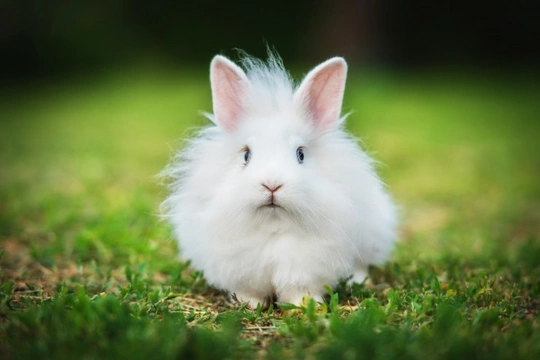
Mites and parasites your rabbit may contract
You may not want to think about your lovely fluffy friend contracting anything creepy crawly or anything that may burrow its way into fur or skin. But unfortunately, they do, although the majority do live on the outside of your rabbit and can be cleared up quite quickly.
If at any time you are worried about your rabbit, your vet will encourage you to make a visit as soon as possible. It doesn’t necessarily mean that it is dangerous, but it is better to be safe than sorry.
Some of the most common creatures that will try to live on your rabbit, are:
Mites
These miniature but troublesome little beasts feed on your rabbit’s skin and fur and can create itchy patches. Quite commonly, they may also lodge in your bunny’s ears. Using their scientific name of cheyletiella, the pests will create dandruff, which is a mixture of dead cells and the mites themselves. These mites are not visible to the naked eye, but if your vet puts a slide of the dandruff under a microscope, they will be able to see them moving.
Although rabbits are always a camping ground for mites, it is nothing to worry about unless the mites increase in numbers and cause infestation. This needs to be treated immediately as this can cause your rabbit to become weak and miserable, but easy treatment is on hand. Most vets with use a drop-on liquid to kill the mites, which you can administer yourself, making sure you cover the whole infected area. Usually two treatments will suffice, but if not, your vet can administer treatment by injection.
Regarding your rabbit’s ears, mites may cause serious crusting and even ulcers on the skin, which must be treated as soon as possible as it can cause your pet pain. Don’t touch the ears or attempt to clean them, leave your vet to administer the correct medication.
Fleas
Fleas can be another pest on your rabbit, as they love to jump onto your pet to collect some blood – however they do not hang around for long and breed, but they will deposit their eggs on and around your own home, in the carpets and furniture. This also applies to your pets bedding, so everything must be thoroughly cleaned and treated if a flea infestation occurs. If you have cats or dogs, any fleas on them will happily leap onto your rabbit as well. Just get any infestation cleared up quickly and there should be no further problems.
Ticks
These are usually brought home by your canine friend but will happily use your rabbit as a feeding option. If you discover any ticks on your rabbit, drop into the vet or at least call them to find out how to treat these parasites. Never try to remove them yourself, as they hook themselves into the skin of your rabbit whilst they suck on blood, and quite frequently they will break off which may cause infection. Use a proper tick preparation recommended by your vet to kill off these bloodsuckers.
Lice
Rabbits can also be susceptible to lice, particularly if the rabbit and his home are not kept clean. Keeping the hutch and bedding clean should deter lice, but if your rabbit has become unwell or under the weather, lice seem to love this situation. Treatment by your vet will soon remedy this, so if you spot any lice (you can see them, they are not hidden), take them to the surgery to confirm treatment.
Fungal Infections
Not overly common, but it does happen, particularly in young rabbits in the form of ringworm. The wounds are somewhat circular, red and crusty, and patches of fur may be lost depending on the severity of the condition. This infection can be transferred to humans. Treatment is available for your pet, but your home may still contain the invasive spores, which are more difficult to eradicate.
Myxomatosis
Whilst this is nowhere near as prevalent as some years ago, mosquitoes still exist in ponds or empty plant containers, so it is wise to remove any standing water that you can – obviously you can’t do this with your pretty garden pond, but a simple trick is to put washing up liquid in the pond, which will not kill any pond life, apart from the mosquitos! This cuts off the oxygen supply to breeding mosquitoes, so inevitably they will die and not cause any problems for your rabbit. Keep your rabbits cool in the hot months, as a warm bunny will be attractive to these biting beasts.
Tummy parasites
Whilst these are not common in your pet rabbit, they can still pick up roundworms or tapeworms from your other domestic pets, or if you live in the countryside and foxes visit your garden, these also carry their own variety of round or tapeworm. Worming rabbits regularly is not essential, it is far better to ensure that your dog is wormed as per veterinary instructions. This infestation is not zoonotic, so it is little or no danger to humans.
If you are going to buy a rabbit as a pet, do check where the rabbits are bred, and the cleanliness of their home and bedding. It would be a shame to start out with a new pet that is already ill before you get them home, and you certainly don’t want your own home infested right from the beginning.



